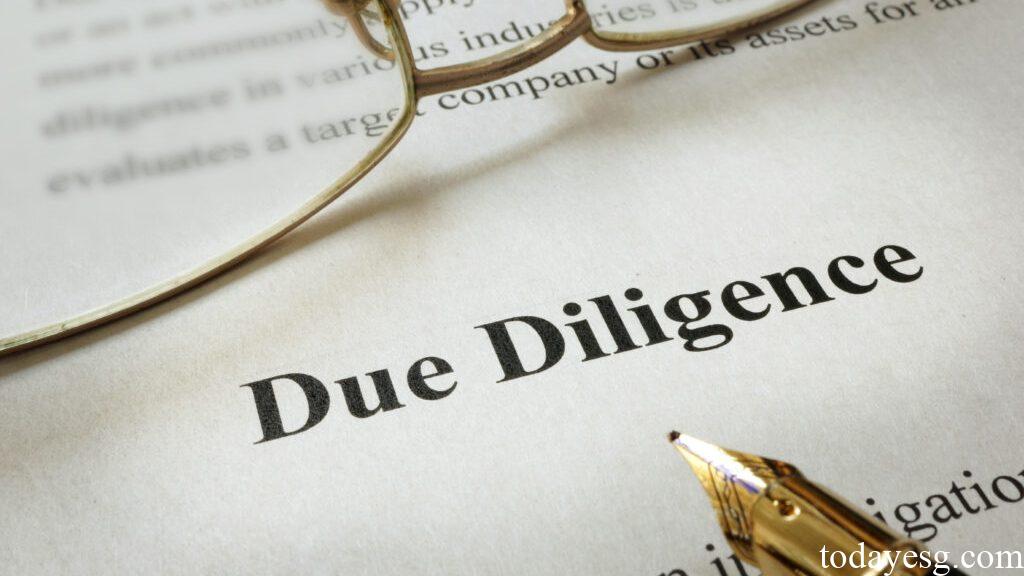PRI Due Diligence Questionnaire for Fixed Income Investors
The United Nations Principles for Responsible Investment (PRI) releases the Due Diligence Questionnaire (DDQ) for fixed income investors, aiming to provide investors with an application template for responsible investment based on the fixed income perspective and provide supplement information for the overall PRI reporting framework.
In designing Due Diligence Questionnaire, PRI referred to the reporting framework of asset management companies released this year and CFA Global ESG Disclosure Standards for Investment Products. At the same time, some issues related to DDQ are also reflected in the EU Sustainable Finance Disclosure Regulation (SFDR). This idea is to promote consistency for other standards and regulations.
Brief Introduction to the DDQ
PRI believes that DDQ can provide investors with the assessment of responsible investment in fixed income, and can provide a framework for the selection, appointment and monitoring of external investment managers. DDQ is applicable to sovereign bonds, corporate bonds, agency debt and securitized products. Investors should answer relevant questions based on the characteristics of these bonds. PRI also prepares separate DDQ for private debt investors.
The problems involved in DDQ can be divided into two aspects. One is for investment institutions (accounting for about 15%), and the other is for specific investment products and investment strategies. The questions include both responsible investment and ESG investment.

Contents of the DDQ
DDQ consists of five parts: Policy and Governance, Investment Process, Stewardship, Reporting and Additional Information. Each part includes the following contents:
Policy and Governance:
- Responsible investment methods, investment strategies and responsible investment principals of investment institutions;
- International standards and reporting framework followed by investment institutions in fixed income investment;
- The commitment of investment strategy in responsible investment and the person in charge of that strategy;
- The method to ensure up to date responsible investment;
- Whether the responsibility investment is linked to performance reviews;
Investment Process:
- Whether the institution has analyzed the financial importance of ESG factors;
- Whether the institution has integrated ESG factors into the investment strategy;
- Whether to adopt ESG screening in investment;
- How to analyze fixed income ESG products;
- Whether there is a formalized template for ESG investment analysis;
- How to measure the sustainability of investment decisions;
Stewardship:
- Whether the investment institution has a stewardship policy;
- How to conduct stewardship in the investment strategy;
- How to track and measure the effect of stewardship activities;
- Whether stewardship is integrated in investment decisions;
Reporting:
- Whether the responsibility investment of investment strategy is disclosed;
Additional Information:
- Whether the investment institution measures and manages ESG risk internally;
- Other information about responsible investment by the institution;
PRI gives some tips for answering each question. For example, for the financial importance analysis of ESG factors, PRI believes that investment institutions can provide specific ESG factor analysis and provide a measurement framework for different ESG risks. In addition, investment institutions can also explain the relationship between ESG risk and asset duration, and disclose analysis frequency, analysis tools, data and standards.
How can Investors Use DDQ
PRI believes that DDQ has provided specific guidance for answering the questions, but hopes that investors can increase information disclosure in combination with the actual situation. At the same time, if investors encounter difficulties in fixed income responsible investment (for example lack of effective data), they can also reflect the actual situation in Due Diligence Questionnaire.
In addition, PRI has provided a series of documents related to due diligence survey, such as responsible investment strategy, due diligence management strategy at the company level, TCFD report at the investment level, responsible investment report, etc. Investors can obtain these reports first and then complete the DDQ.
Reference:








